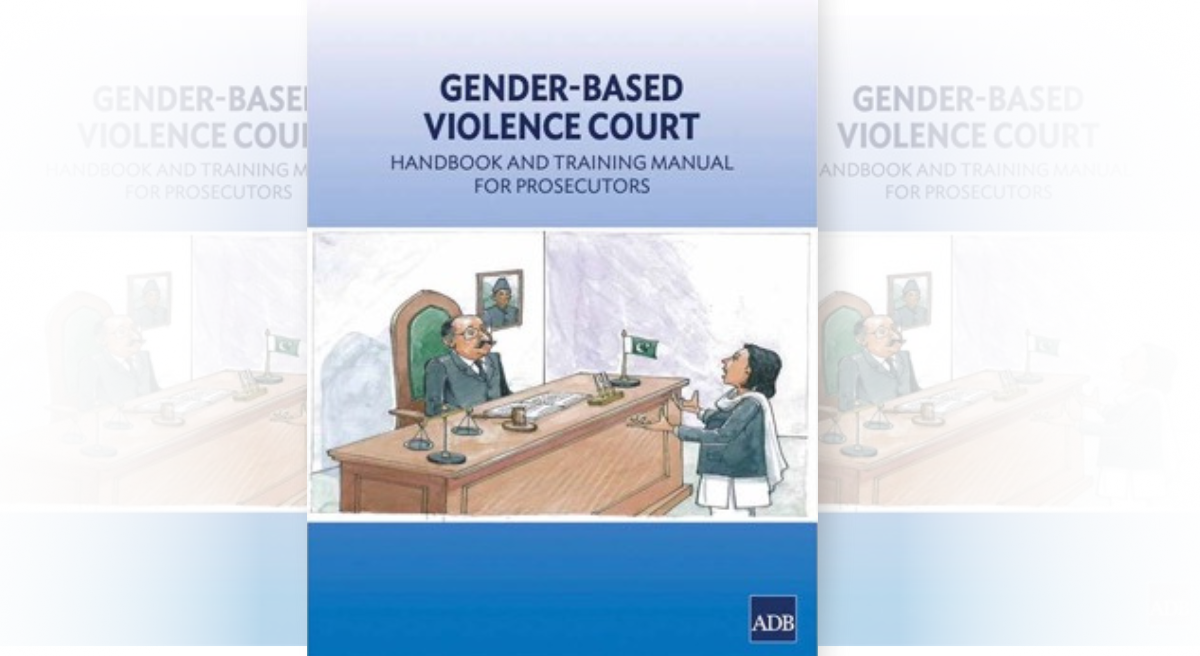ADB Supports the Establishment of Model Gender-Based Violence Court in Lahore

“Every person has the right to live, and the right to live means right to live with dignity. A person should live as a “person” and no less. Human dignity hovers over our laws like a guardian angel; it underlies every norm of a just legal system and provides an ultimate justification for every legal rule, […] making human worth and humanness of a person a far more fundamental right than the others, a right that is absolutely non-negotiable.”
- Atif Zareef v. State (PLD 2021 SC 550) citing Article 14 of The Constitution of Pakistan, (1973 Constitution)
However, this did not translate to reality for women in Pakistan experiencing gender-based violence. In 2016, out of 2,353 rape cases before the courts in Punjab, only 100 resulted in convictions, a conviction rate of only 4.25%. This figure excludes most cases that were withdrawn before going to court.
In response, the then Chief Justice of the Lahore (Punjab) High Court requested ADB to provide technical assistance in developing the capacity of the judiciary and key court officers, leading to the first specialized Model Gender-Based Violence (GBV) Court established in Lahore in October 2017.
ADB, through its Office of the General Counsel's Law and Policy Reform Program, got to work with an assessment of the judicial landscape and the results pointed to an ingrained and widespread belief of false or exaggerated rape claims which may have contributed to a low conviction rate. Further inquiry revealed that firstly, in almost all cases, complainants and victims withdrew or retracted their claim after reporting. Secondly, male family members invariably sought a ‘compromise’ with or received compensation from alleged perpetrators outside of court proceedings or were responsible for pressuring the women in their family to recant claims. Thirdly, victims were being intimidated and re-traumatized in the courtroom by counsel intimidation and a close physical proximity between the victim and perpetrator.
Understanding and addressing these gender biases in court was critical in addressing and subverting entrenched beliefs and practices. After conducting a series of trainings, ADB assisted the establishment of the first GBV Court in Lahore.
Firstly, specialized judges and prosecutors were identified and provided with case management skills training and specialized police units were established to investigate GBV cases. The Court floor plan was modified to provide the victim and witness with a seat and a screen so that the victim could give evidence without facing the accused. Lawyers were distanced from the judge’s bench and the witness box. If a victim gives evidence in the court room, she should enter the court room while the accused is absent, accompanied by a female support officer, and be seated behind a screen before the accused returns to the court room. Alternatively, the addition of a projector allowed witnesses to give evidence remotely.
Expressing praise for ADB’s interventions, Justice Syed Mansoor Ali Shah of the Supreme Court of Pakistan said: “When I discussed with ADB the possibility of taking proactive measures to increase access to justice by victims of violence, I had hoped that our efforts would bring about some measure of change […]. The outcome was beyond expectations. We trained over 600 judges and prosecutors, as well as established Gender-Based Violence Courts—the first in Lahore and subsequently throughout Pakistan. This was a first in Asia and I am very proud to have spearheaded the process of bringing about this change. And my gratitude to ADB and its team of amazing experts and trainers. I would also like to congratulate the team for publishing [the] Court Companion for Gender-based Violence Cases, which should be a constant companion on the desk of every judge in Pakistan.”
After a year of transformative changes and results, the women of Pakistan were provided with the dignity they deserved. The conviction rate for rape cases heard in the specialized court rose to 16.5%. Subsequently, the Supreme Court directed that specialized GBV Courts be set up in each of Pakistan’s 116 districts. By the end of 2021, special courts for gender-based violence were in operation nationwide.
Proceedings in the GBV Court are held in accordance with the Guidelines to be Followed in Gender-Based Violence Cases and Practice Notes, which ADB assisted the Lahore High Court in drafting. In 2020, the Convention on the Elimination of All Forms of Discrimination Against Women (CEDAW) Committee, a committee of international experts who assist in the interpretation and implementation of CEDAW, commended the Government of Pakistan for setting up the Model GBV Court in Lahore.
For more information, click here.
